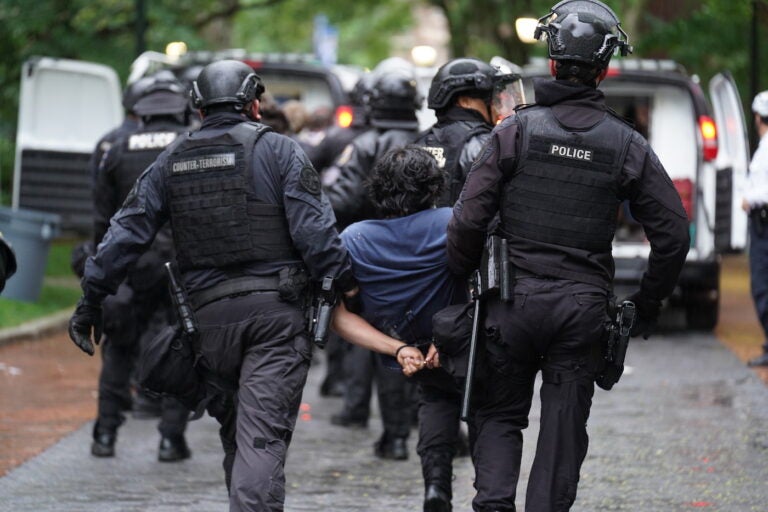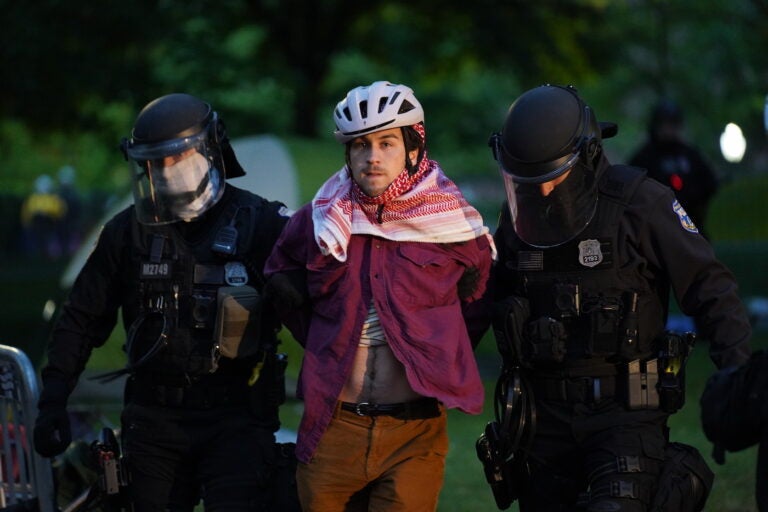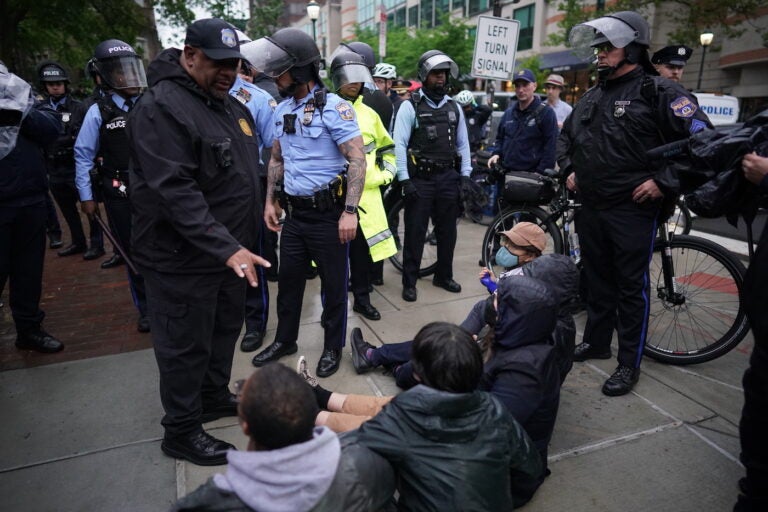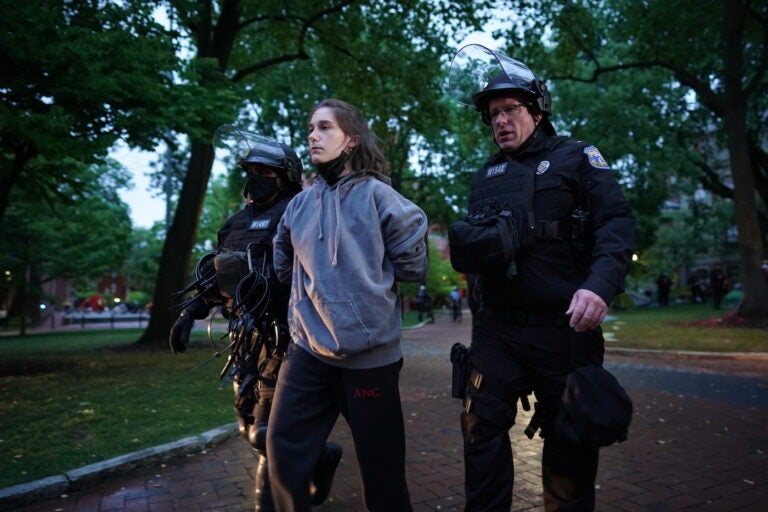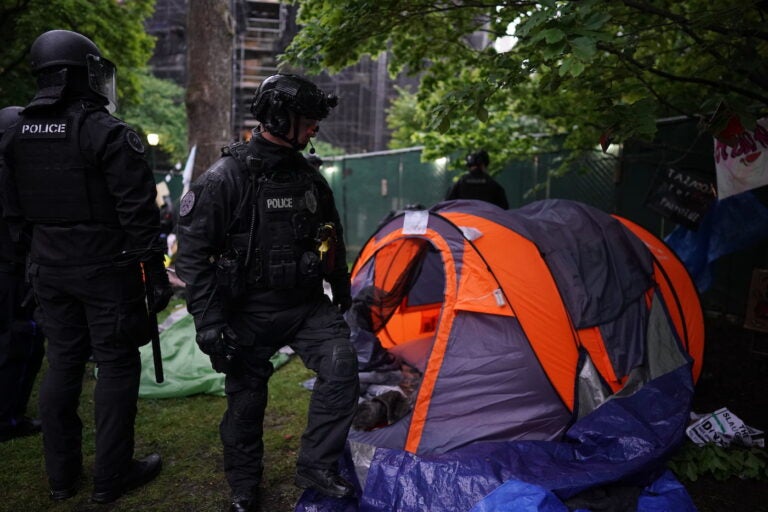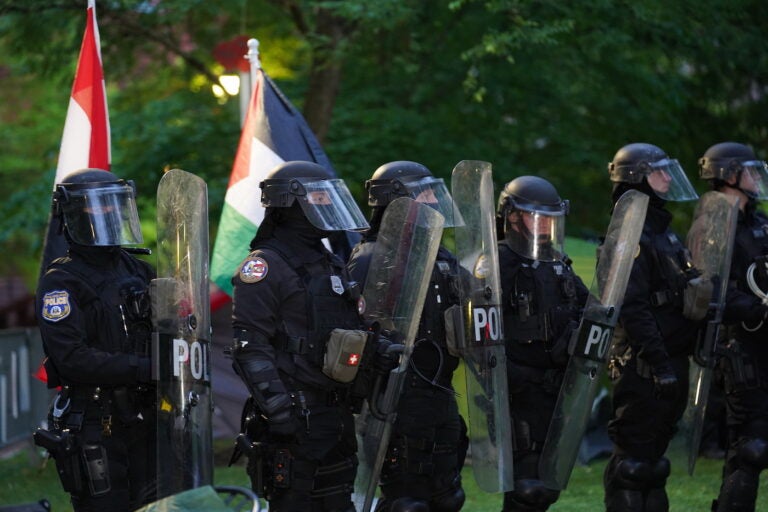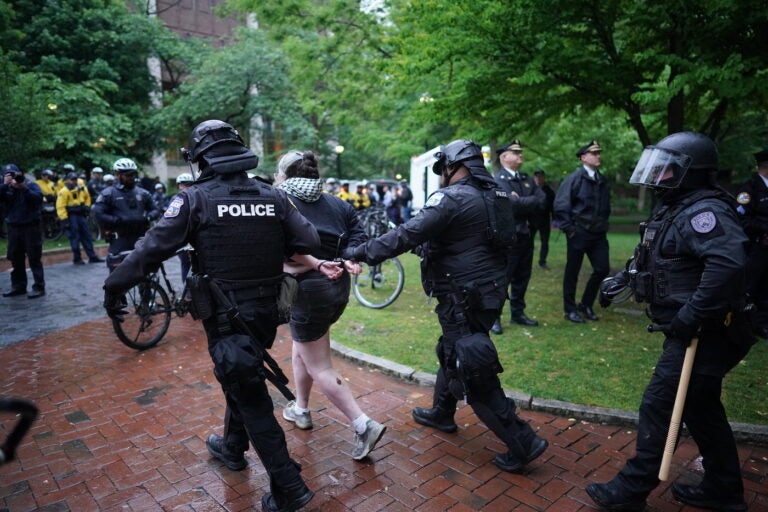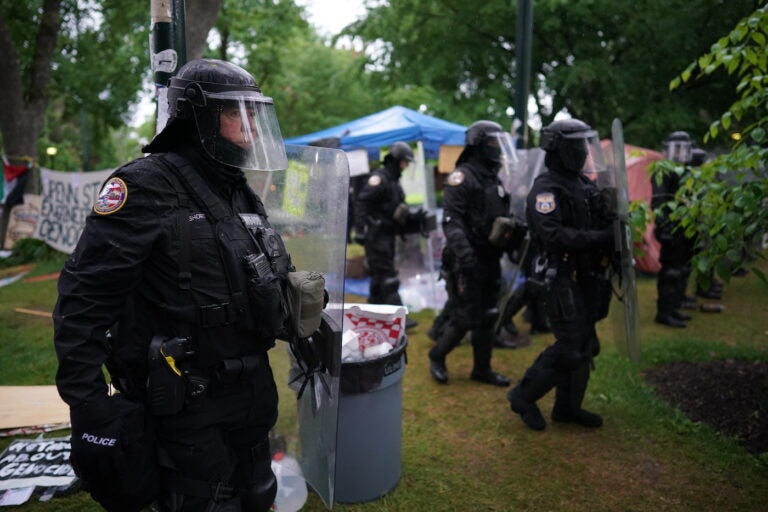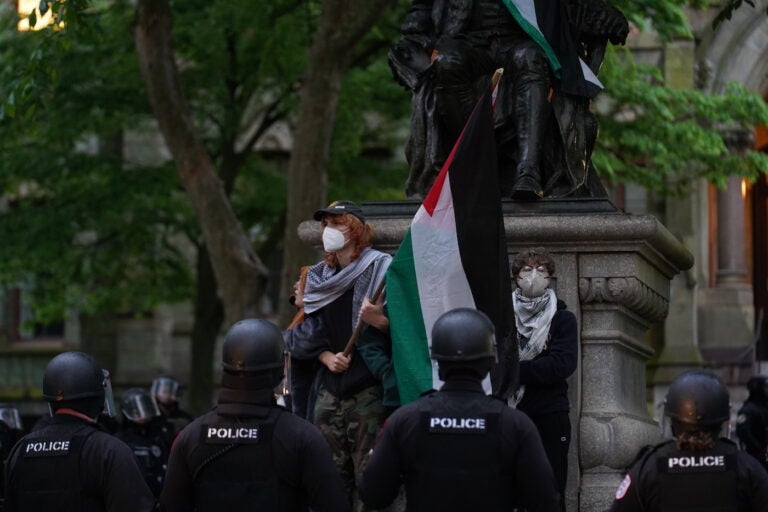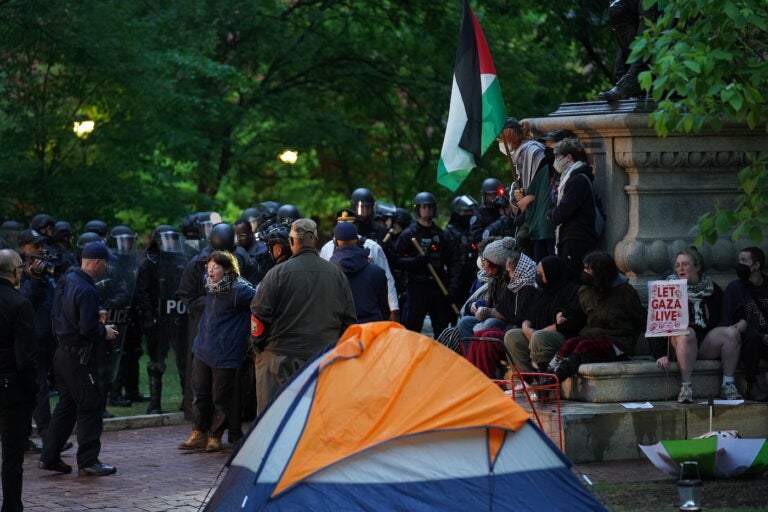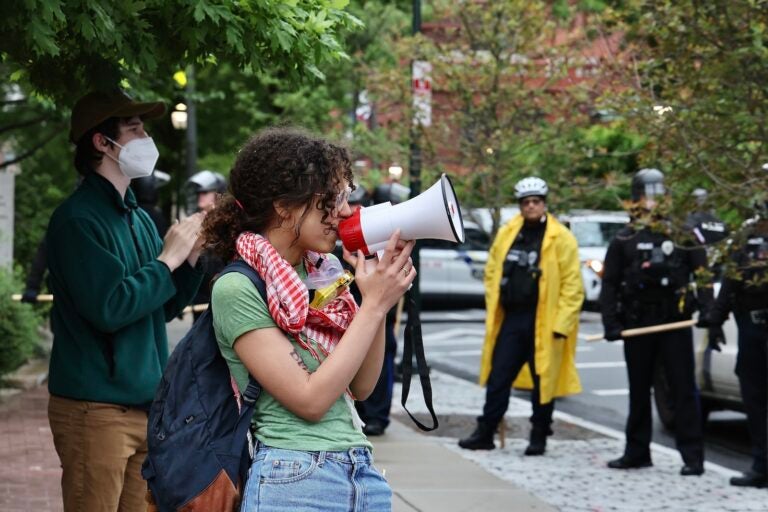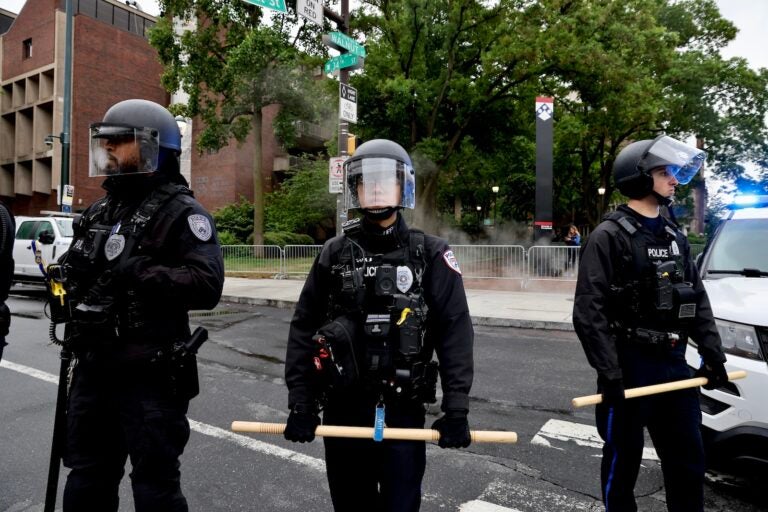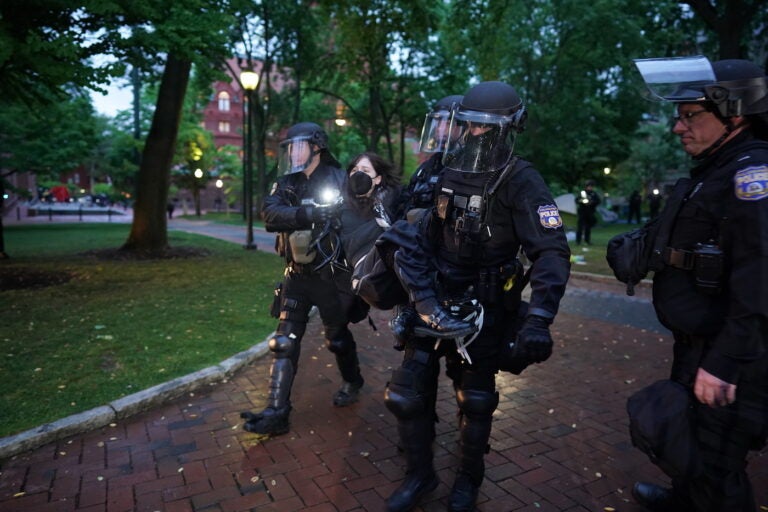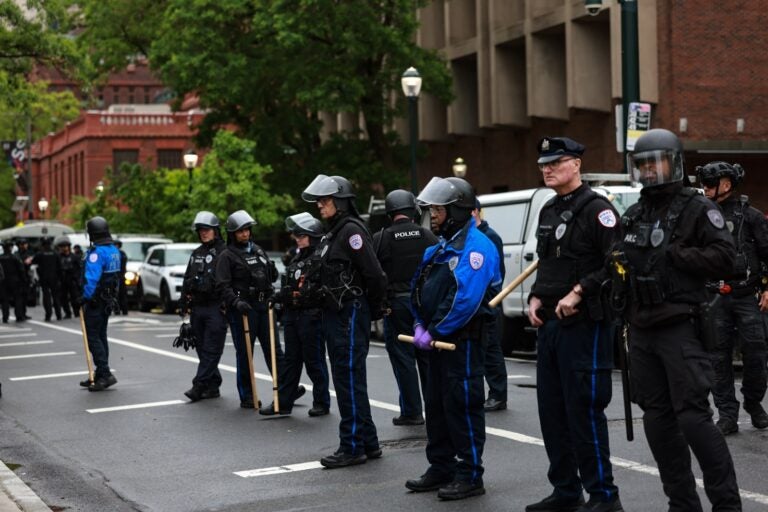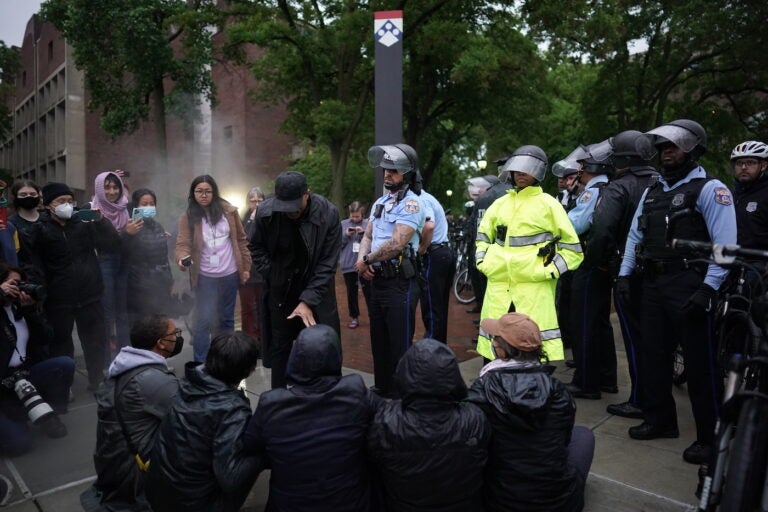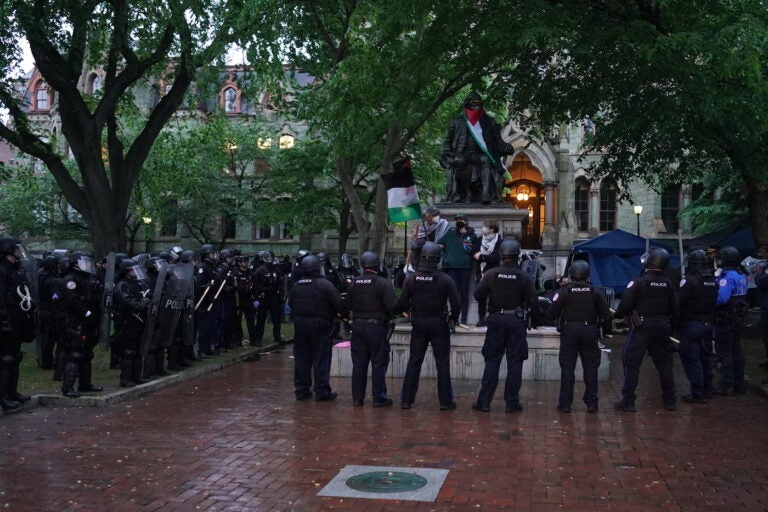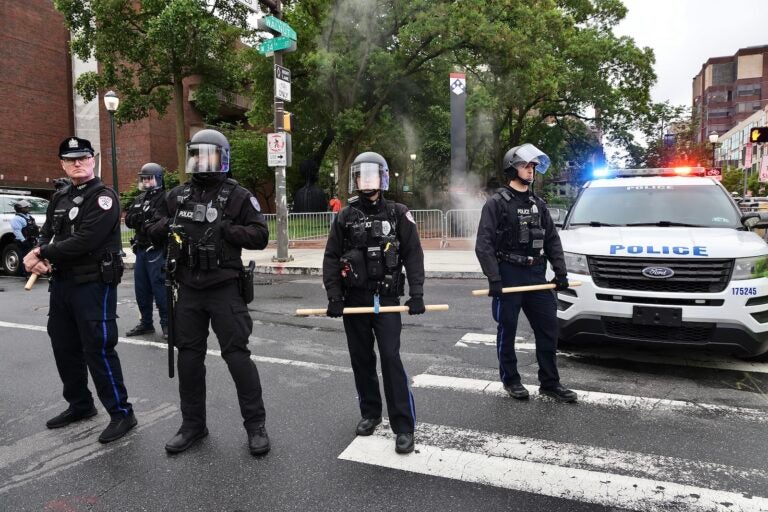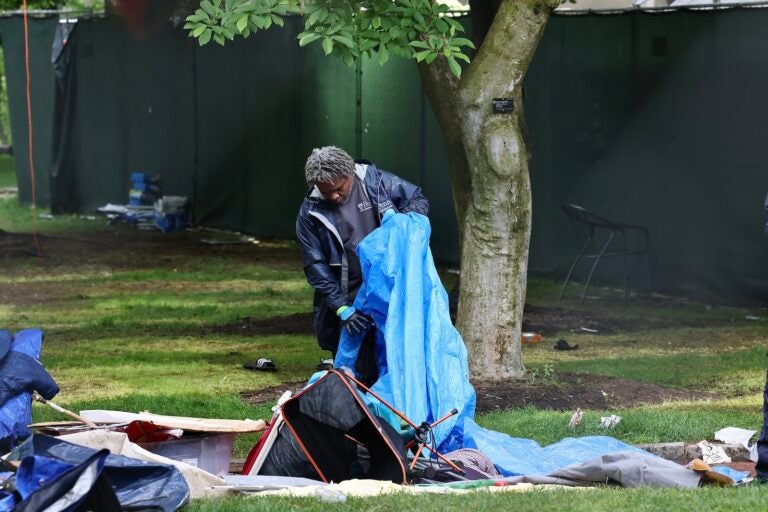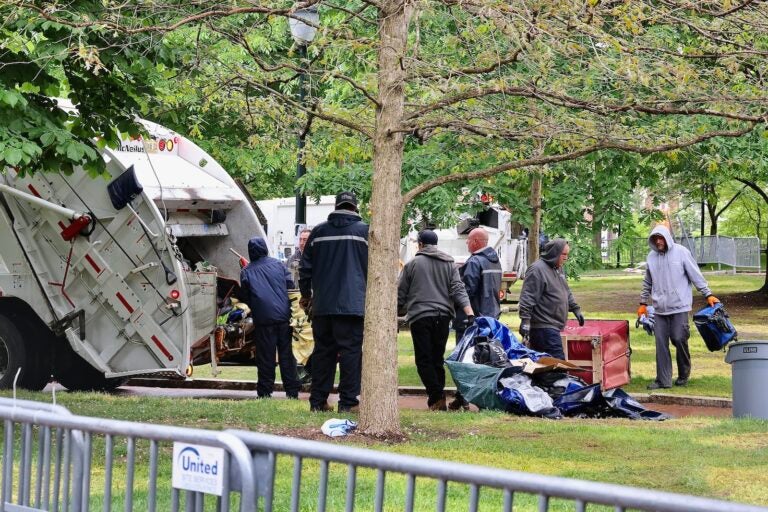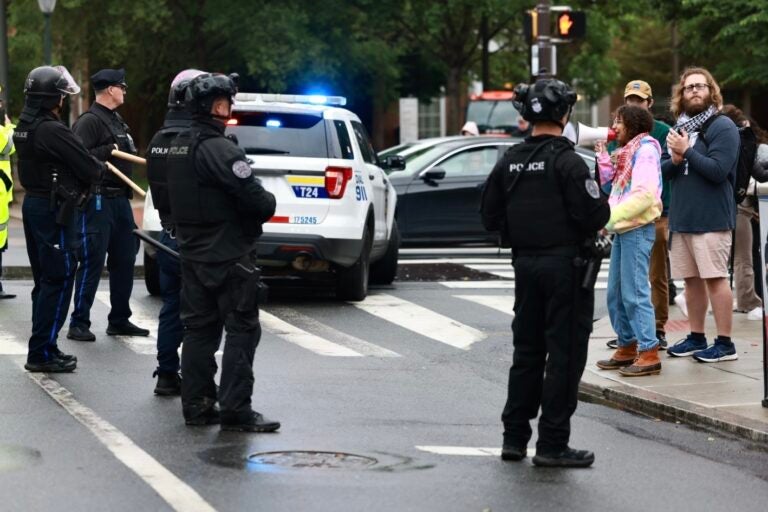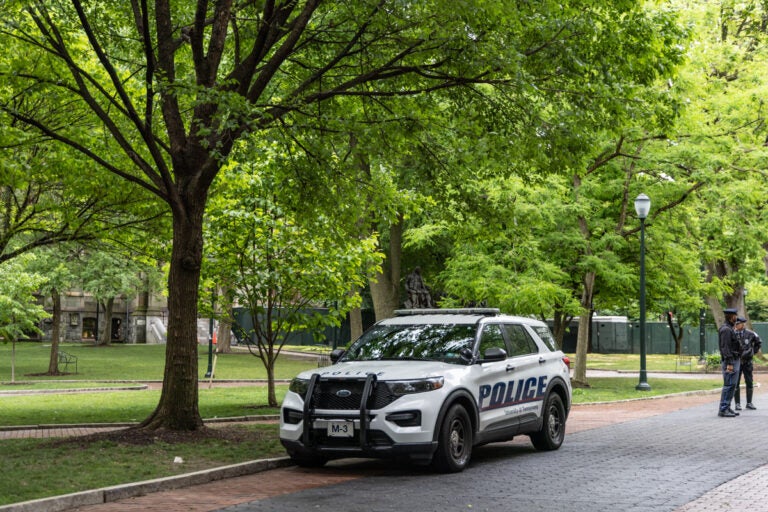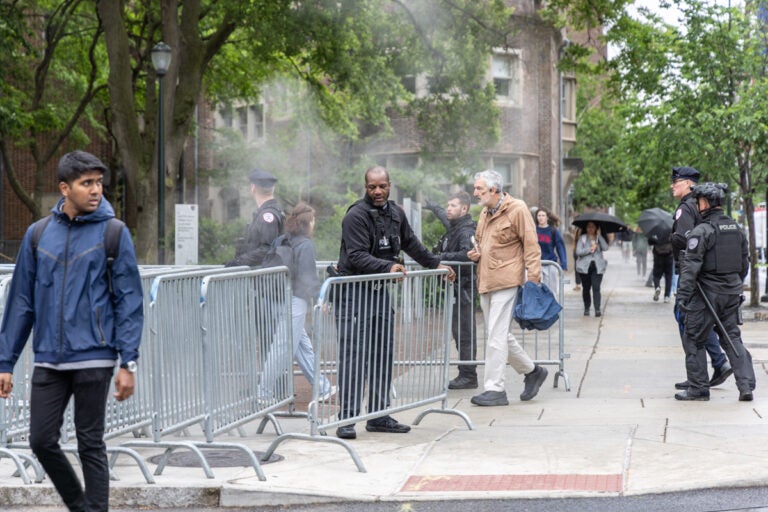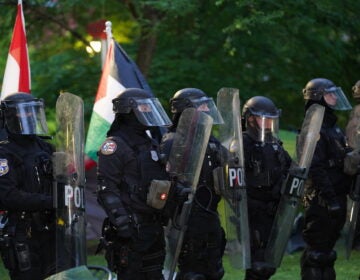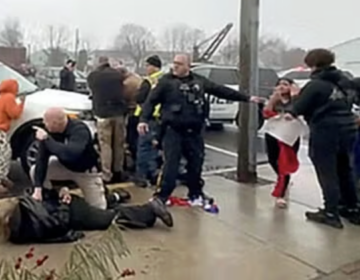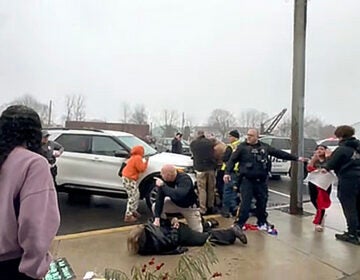After a 2-week encampment, Philly police arrest 33 protesters on Penn’s campus
Penn had previously placed six students on a mandatory leave of absence for their role in the encampment.
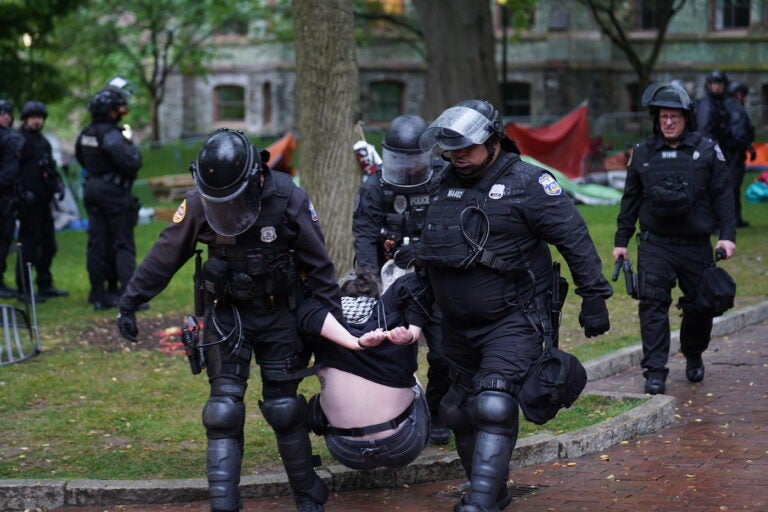
Police disband the pro-Palestine encampment and make numerous arrests, Friday May 10, 2024, on the campus of the University of Pennsylvania. (Joseph Kaczmarek for WHYY)
Dozens of Philadelphia police dressed in riot gear arrived at the protest encampment at the University of Pennsylvania before 6 a.m. Friday.
Shortly after ordering the pro-Palestinian protesters to leave, they started making arrests. After being arrested, some students were seen sitting on the sidewalk with their hands restrained behind their backs, others were quickly loaded into police vans. Some shouted “free Palestine” as they were led away by police.
In a statement, Penn interim president J. Larry Jameson and other school leaders said the protesters “refused repeatedly to disband the encampment, to produce identification, to stop threatening, loud, and discriminatory speech and behavior, and to comply with instructions from Penn administrators and Public Safety.”
They went on to say the protesters’ proposals “were not possible, including their demands that participating students and faculty receive amnesty without proceeding through our due process for conduct and for divestment from entities engaged with Israel. Penn remains unequivocally opposed to divestment, and it is unlawful for institutions receiving funding from the Commonwealth of Pennsylvania.”
“Open expression and peaceful protest are welcome on our campus, but vandalism, trespassing, disruption, and threatening language and actions are not.”
The police action drew protests of its own, with some people forming a line to block police vehicles from leaving the area.
Penn alum Zoe Sturges was leading chants outside the encampment site Friday morning as sanitation trucks moved through the campus and workers were collecting the tents and other items left behind. “It’s disgusting,” Sturges told WHYY’s Billy Penn on Friday morning. “I mean to see cops in full riot gear with night sticks on a college campus. It’s a dark sight to see.”
Councilmember Jamie Gauthier and state Rep. Rick Krajewski both represent the area that includes Penn’s campus. They issued a joint statement Friday morning, calling the show of police force “disappointing.”
“We are disappointed that riot police dismantled a peaceful student-led protest this morning. From the start, we advocated for a negotiated, nonviolent resolution. Sending a large militarized police force against students and faculty is an inappropriate and deeply concerning response,” they said in an emailed statement.
They said the city plans to issue a civil citation (Code Violation Notices), not criminal charges to protesters who were arrested.
“We are glad that the City only plans to issue CVNs to those arrested, and urge that Penn not escalate this situation further by disciplining their students and faculty.”
Philadelphia District Attorney Larry Krasner confirmed that those arrested were issued CVNs. He said that 33 people were arrested and were in the process of being processed and released.
Shortly before 9:30 a.m., the majority of police vehicles left and 34th Street between Walnut and Spruce was opened up again to pedestrian and vehicle traffic. The protesters left by 10 a.m. and some of the barricades at the entrance to College Green were removed. The buildings around College Green became accessible but the center where the encampment once stood remained closed off by police.
Mayor Parker’s office released a statement saying it was “thankful that the clearing occurred without violence and express our deep gratitude to the men and women of our Police Department, who provided around the clock assistance to Penn over the last several weeks.”
Campus Gaza protests: What to know
- Student protests over the Israel-Hamas war have swept campuses across the U.S., including in the Philly region
- Many are calling for their institutions to divest from companies with ties to Israel. Here’s a look at what that would entail
- Amid the unrest, the U.S. House passed a bill that would expand the definition of antisemitism
- President Biden says the protests have not prompted him to rethink his Mideast policies, adding “order must prevail”
- Here’s what’s happening related to the war in Gaza on Philly, Jersey and Delaware campuses
The protest encampment started in late April after hundreds of students and faculty at Temple, Drexel and Penn staged walkouts and rallies at their respective campuses as part of nationwide demonstrations.
On Thursday, Penn placed six students on mandatory leave of absence for their role in the encampment. Further action is pending disciplinary investigations by Penn’s Center for Community Standards and Accountability, a Penn spokesperson said.
That disciplinary action followed a major increase in the size of the encampment despite the school’s order to disband it. The encampment has tripled in size, with dozens of tents set up on College Green
“The situation has gotten even more unstable and out of control,” said Gov. Josh Shapiro on Thursday. “More rules have been violated, more laws have been broken. That is absolutely unacceptable. All students should feel safe when they’re on campus. All students have a legal right to feel safe on campus. And the University of Pennsylvania has an obligation to their safety. It is past time for the university to act to address this, to disband the encampment and to restore order and safety on campus.”
U.S. Sen. Bob Casey of Pennsylvania voiced his support for the removal of the encampment at an event for the Weitzman National Museum of American Jewish History in Old City on Friday morning
The Jewish Federation of Greater Philadelphia commended the university’s actions in an emailed statement.
“While free speech and critical thinking are essential tenets both on and off college campuses, it had become increasingly clear over the past two weeks that the encampment fostered an atmosphere of intimidation and harassment, particularly towards Jews on campus,” the statement read.
The American Association of University Professors-Penn Executive Committee condemned the school administration’s decision to remove the encampment, as well the actions against the six students.
“It was not the encampment but the university administration that created a crisis,” AAUP-Penn’s statement read. “Mimicking the response of university administrations across the country, administrators spent weeks whipping up fear by misrepresenting peaceful protest as a threat to safety, threatening the students with discipline, and accusing them of violating unnamed rules without any evidence, all in an apparent attempt to legitimate a crackdown or intimidate protesters into leaving.”

Get daily updates from WHYY News!
WHYY is your source for fact-based, in-depth journalism and information. As a nonprofit organization, we rely on financial support from readers like you. Please give today.


